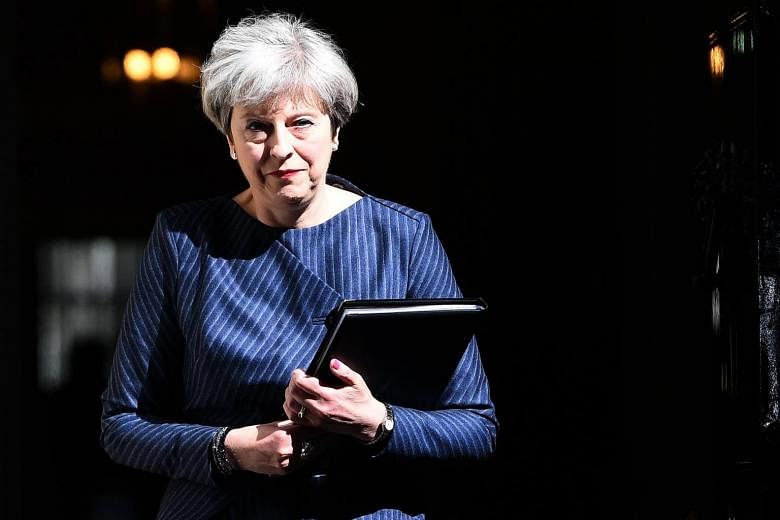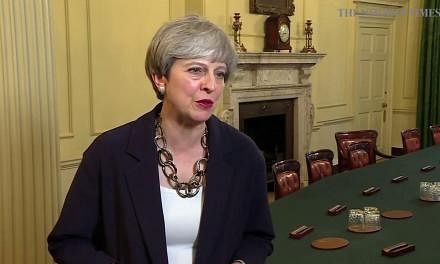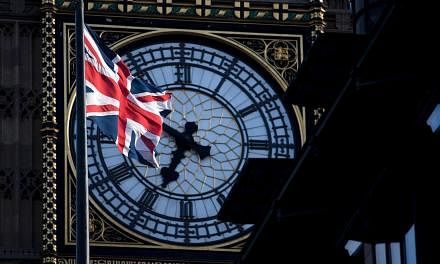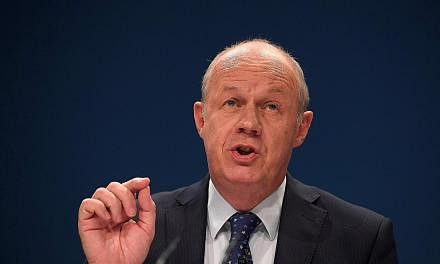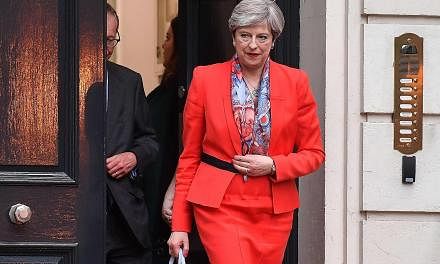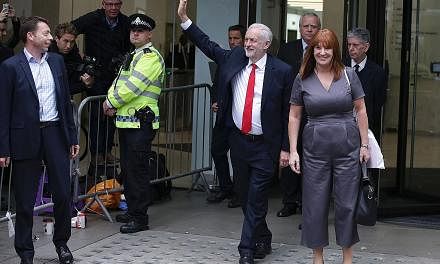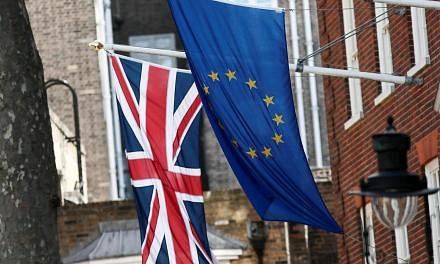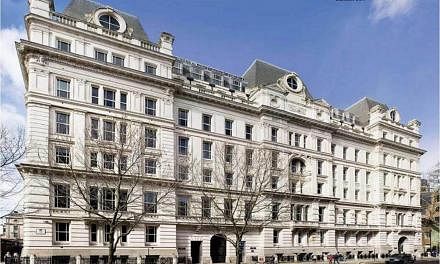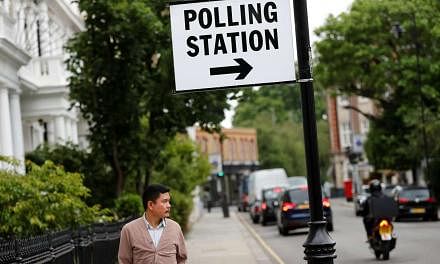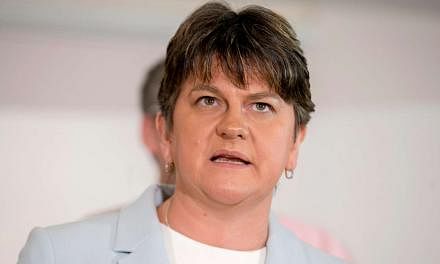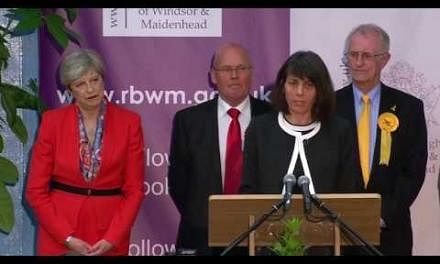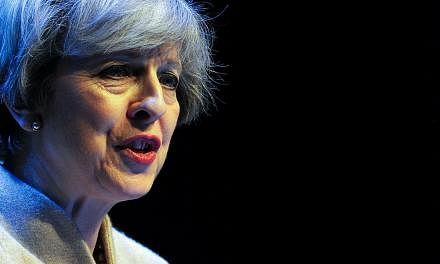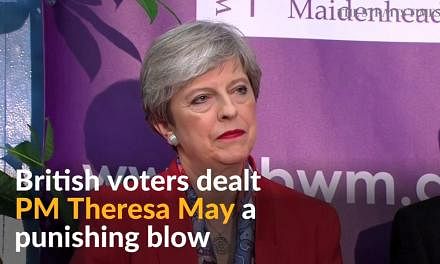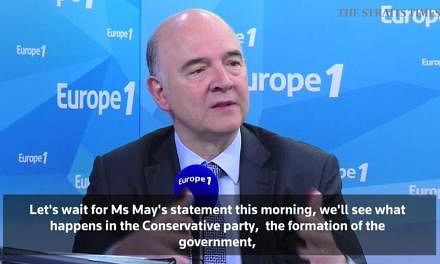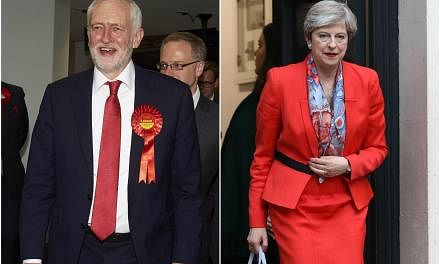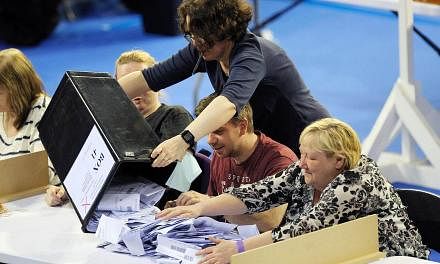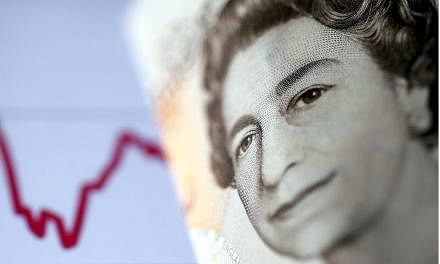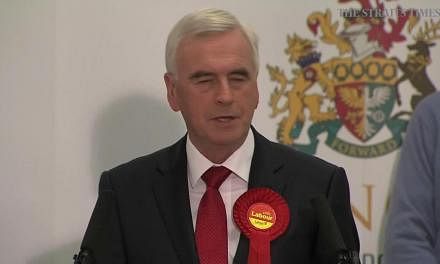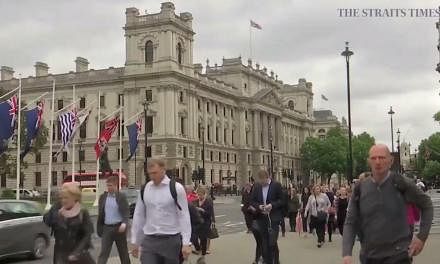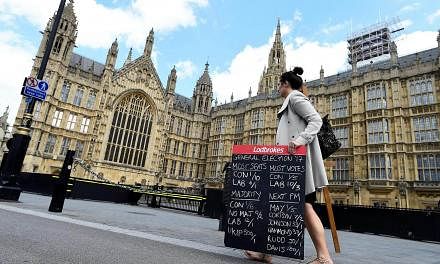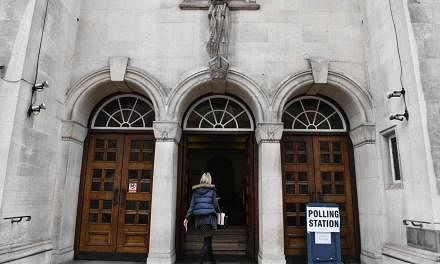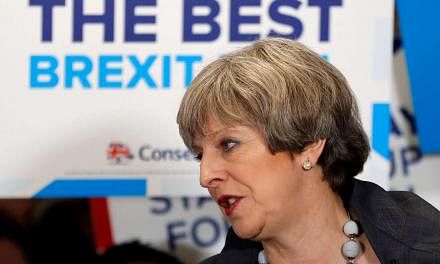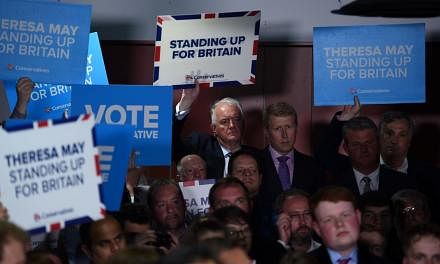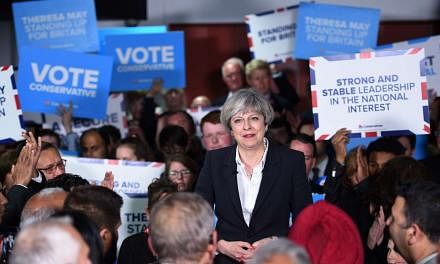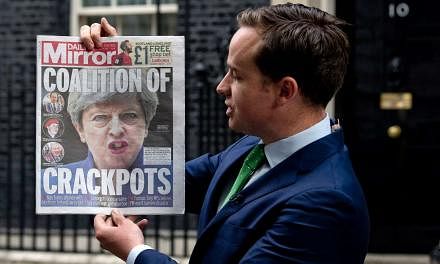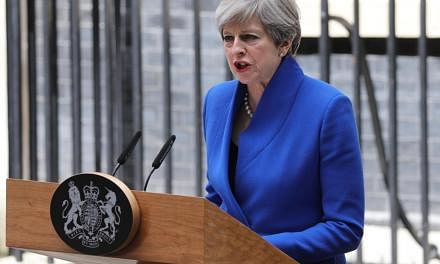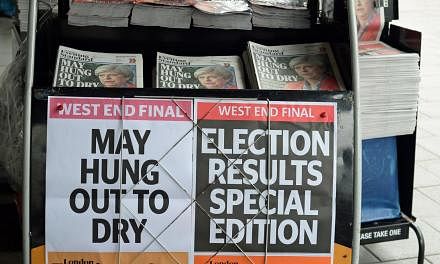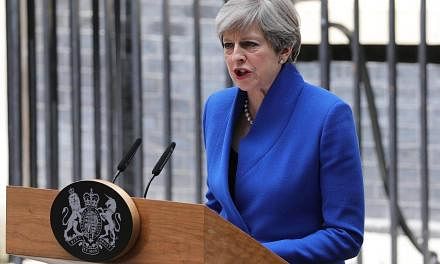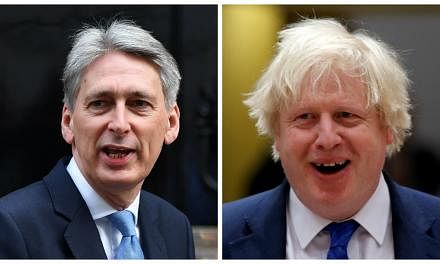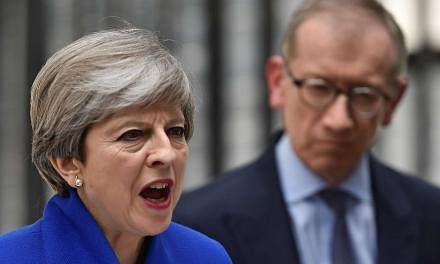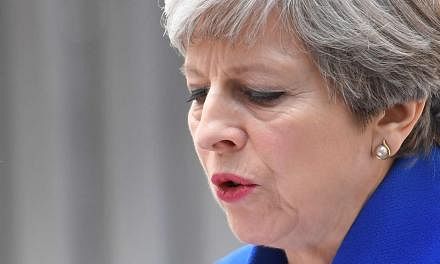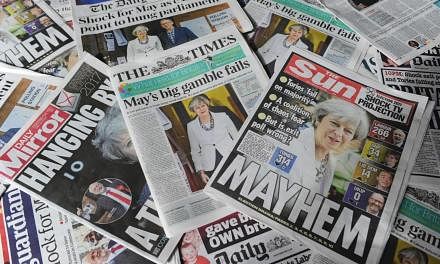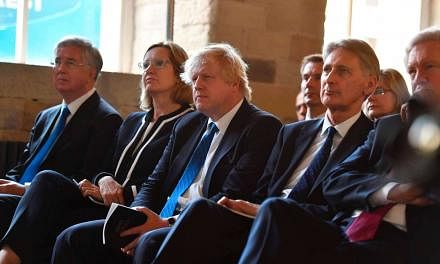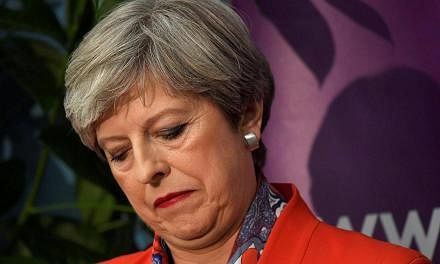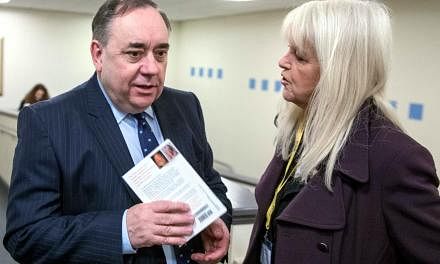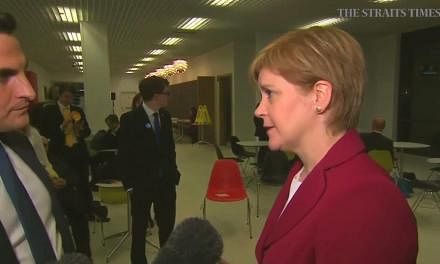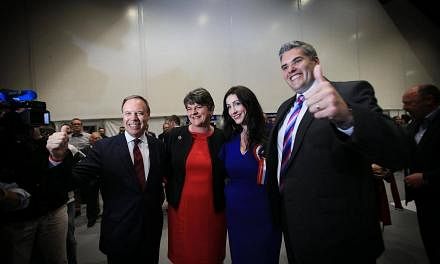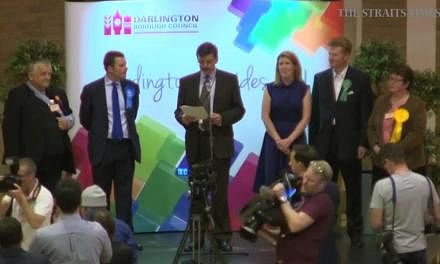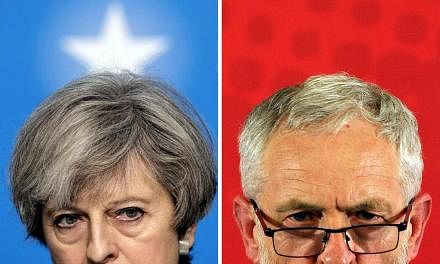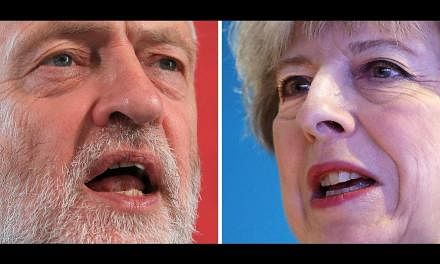LONDON (REUTERS) - British Prime Minister Theresa May on Tuesday (April 18) called for an early election on June 8. Here are the steps needed before the vote happens.
HOW WILL SHE CALL AN ELECTION?
The mechanism for a government in Britain to call a new election is more complicated than it used to be.
Governments used to be able to call elections when they saw fit, but the Fixed-term Parliaments Act, passed in 2011, set a timetable for elections to take place every five years.
Under the legislation, a motion for a new vote ahead of schedule needs to be carried by two thirds of the 650 seats in the House of Commons, including vacant seats.
This means that the government needs 434 votes to call the election.
May said that she would introduce a motion to Parliament on Wednesday (April 19). If it is passed, Parliament will come to an end 25 working days before the date of the general election which, accounting for public holidays, will be May 3.
May's Conservatives hold 330 seats in the chamber, and the opposition Labour party 229. Labour has said that it will vote for the election, so the combined 559 votes would be enough to pass the motion if all lawmakers of both parties follow the party line.
WHY DID MAY CHANGE HER MIND?
The decision by Theresa May to call a snap election is a U-turn, as she had previously repeatedly ruled out such a move.
She has previously said that Britain needs stability rather than a new election, but on Tuesday she implied that division in Westminster was undermining that stability already.
"At this moment of enormous national significance there should be unity here in Westminster, but instead there is division," May said on Tuesday as she announced a general election.
She also cited economic strength as a sign of her government's success. "Despite predictions of immediate financial and economic danger, since the referendum we have seen consumer confidence remain high, record numbers of jobs, and economic growth that has exceeded all expectations," she said.
Economists had said that the British economy's relative strength at the moment makes this a good time to have an election, before nascent signs of a downturn can gather steam.
May's position may also have been influenced by the polls.
A survey by ICM on Tuesday gave the Conservatives a 18 percentage point lead over the main Labour opposition party, and other polls over the last week have put the lead at over 20 percentage points.
Labour has been riven with internal division over the Brexit vote and the leadership of Jeremy Corbyn, who many of its lawmakers believe will struggle to win an election.
Betting odds indicated May's Conservatives had an 80 per cent chance of winning a majority while Labour had just a 2 per cent chance.
WHAT DOES IT MEAN FOR BREXIT?
If May wins the June 8 election, her position would be strengthened at home and in negotiations with the 27 other members of the EU.
With a large majority, May would be less beholden to extreme euroskeptics inside the Conservative Party while winning a personal mandate would strengthen her position as prime minister.
It also gives her more space domestically to negotiate Britain's exit, which under the current timetable will take place in March 2019. Had she waited until 2020 to hold an election, she would have faced voters just a year after leaving the EU.
By calling one in June, May could win more space domestically as the next British election would not be due until 2022. That would allow her some political space to deal with any of the potentially negative economic implications of Brexit.
But her gamble also means that the biggest three economies of the European Union - Germany, the United Kingdom and France - all face elections in 2017.
